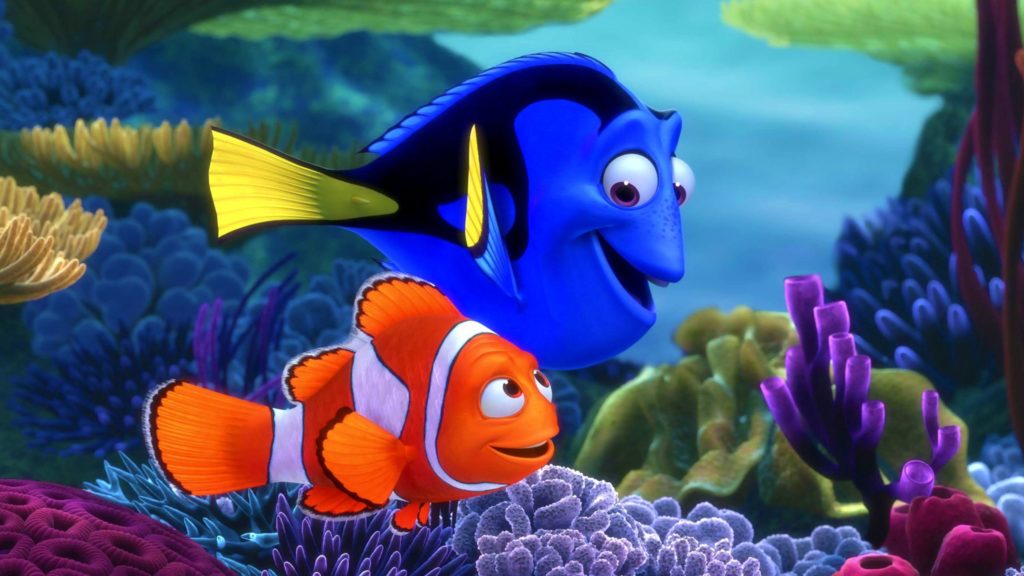With Memorial Day upon us, and weeks to go before new movies are scheduled to hit theaters (God willing), we wanted to continue our look at summer movie seasons past with this reflection by Conrado. For more summer movie retrospectives, check out our podcast on the best summer movies of all time! -Tim
With movie theaters closed and all major studio movies delayed indefinitely, the 2020 summer movie season is a no go. Those who wish to recreate the experience of going to see the latest blockbuster are stuck looking back at the summer seasons of the past. That’s not necessarily a bad thing. If you’re like me, you spend most summer seasons complaining about the decline of the American blockbuster. How beautiful is it, then, to be able to pick and choose from your past favorites. For me, looking back at past summer favorites has resulted in a newfound appreciation for the class of 2003, an unlikely contender that is creeping up on me as a damn solid summer. Let’s take with a grain of salt the fact that I was eleven years old back in ’03 (the perfect age to fall in love with flashy Hollywood spectacle) and let me submit for your consideration: the great summer of 2003.
The golden triad of this fateful summer, and the bedrock of any argument about its greatness, consists of mutants, fish, and pirates. X2: X-Men United kicked off the summer by following through on the metaphor of super-powered mutants as oppressed minorities, filling up its runtime with social melodrama (like the scene in which Bobby Drake “comes out” as a mutant to his parents) and awesome action sequences (like the great Nightcrawler opener.) A couple weeks later, Finding Nemo became Pixar’s biggest box office hit up to that point, with its flawless mix of comedy and heartfelt emotion. And then there was Pirates of the Caribbean: The Curse of the Black Pearl. It’s easy to forget that this now tired franchise originated as an unlikely hit. Based on a theme park ride, expectations were low for what ended up being a delightful adventure movie. It’s also easy to forget how seventeen years ago, Johnny Depp’s performance as Captain Jack Sparrow felt deeply fresh and almost revolutionary.
That’s just the beginning. Beyond these three juggernauts, the summer was full of endearing and enduring offerings. Here’s a sample of what was offered: Danny Boyle’s 28 Days Later…, which kicked off a renewed interest in zombie movies. Charming family movies like the soccer comedy Bend It Like Beckham and the remake of Freaky Friday, with a delightful comedic performance by Jamie Lee Curtis. Heartfelt coming-of-age dramas like Whale Rider. Goofy but fun actioners like Terminator 3: Rise of the Machines and The Italian Job. Generational staples for young women such as Thirteen and The Lizzie Maguire Movie. Massive boondoggles like The League of Extraordinary Gentlemen. You had Charlie’s Angels: Full Throttle, whose wild tone feels more at home with Asian than Hollywood blockbusters. There was even a Rock Hudson and Doris Day-inspired musical in the delightful Down with Love.
But I would like to make special mention of three movies that, far from being agreed upon as classics, are some of the most fascinating blockbusters Hollywood’s ever produced. The Matrix Reloaded, once most anticipated movie of that summer, was much maligned for giving the Wachowski sisters the opportunity to dive deep into their own crazy mythologies. One can easily appreciate the movie’s superb highway chase, it takes a particular kind of viewer to decipher its convoluted deconstruction of the hero’s journey. Similarly, Ang Lee’ vision of Hulk as an operatic monster movie, despite stylistic flourishes, resembled Oedipus Rex more closely than it did a Marvel comic book. Finally, Bad Boys II found vulgar auteur Michael Bay at his most unrestrained, indulging in violent excess that quickly devolves into retrograde humor and total incoherence.
The common denominator in the most of these movies is a desire to try out something different. Not all of them succeeded – financially, successfully, or both – but they made for a memorable summer. Yes, I must recognize nostalgia plays a part in my affection for these movies, many of which shaped my love of film, but I am also prepared to make a less personal argument. I have, for a long time, held that the period between 1999 and 2007 was a particularly fertile and interesting period for big budget Hollywood spectacle. This was a time when sequels were becoming increasingly profitable, but studios had not yet figured out how to properly “manage the brand.” As a result, directors became synonymous with the franchises they spear-headed, and were often able to follow bold artistic instincts rather than studio mandates. 2003 falls right in the sweet spot of this period.
So, what do you think? Do you buy my claim for 2003 as the greatest summer season? If not, sound off in the comments: what year would you propose and why?
—
Conrado Falco is a New York-based playwright and co-artistic director at Showdogs: Theatre Unleashed. He publishes most of his film writing at CocoHitsNY, but the best way to keep up with him is to follow him on Twitter (@CocoHitsNewYork).
